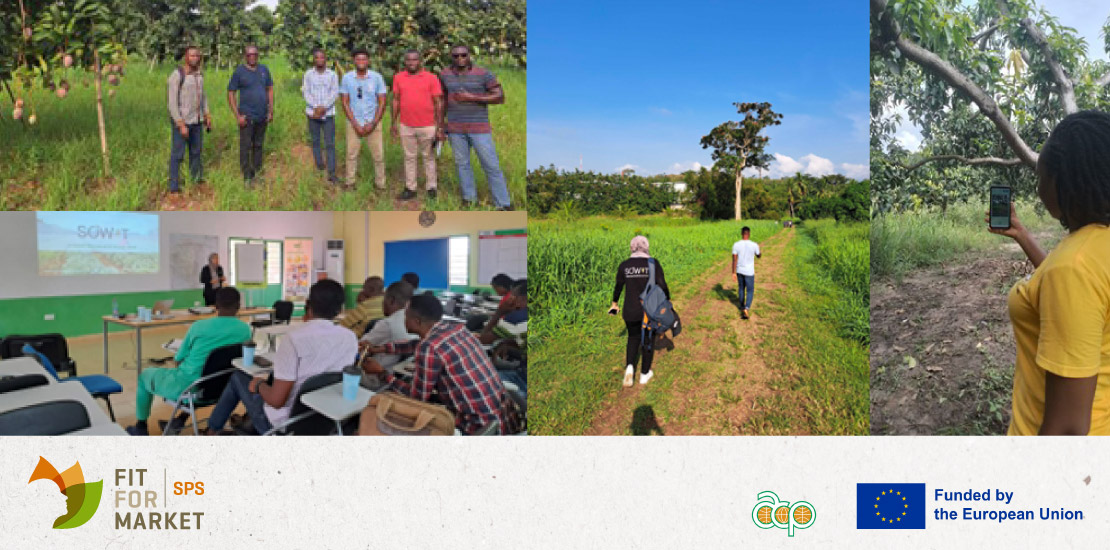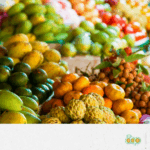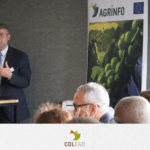SOWIT, CIRAD & COLEAD in Ghana : a partnership to digitize the Mango value chain
- 22/05/2023
- Posted by: Sandra Borma
- Category: Corp EN, Ghana, News

Measuring and predicting yields are major challenges in agriculture. The uncertainty of such evaluations has multiple repercussions that can affect the development of entire value chains.
HPW Fresh & Dry Ltd., the largest dried-fruit producer in West Africa, requested support from COLEAD to resolve one of its most critical pain points: the lack of methods to estimate yields of its partner mango farmers reliably and efficiently. The company’s goal was to be able to accurately size its supply chain and optimize the resources needed to collect the data on the ground from the multitude of outgrowers.
CIRAD had presented their image recognition app to COLEAD a year previously. Since then, CIRAD has partnered with the startup SOWIT for the distribution of the yield estimation solution SOYIELD®. COLEAD Research and Innovation Brokerage department proposed to conduct a pilot with HPW in Ghana.
SOYIELD® had been successfully deployed in mango production in Côte d’Ivoire and Senegal, and in Morocco and Tunisia on citrus crops, with the app able to estimate the yields with a precision of 90–95% for various crop conditions. Ghana was a new territory for SOYIELD® and represented an opportunity to evaluate the solution and observe its scalability first-hand, across regions and crop conditions. Spending a week with the HPW field team also allowed SOWIT to build further capacity on the ground, by onboarding farmers and HPW resources alike on the use of precision agriculture technologies leveraging artificial intelligence (AI) and remote sensing to empower smallholder farmers. This was achieved through a series of training sessions with farmers to build their understanding of AI as a whole; how it works, its benefits and challenges. Farmers also received field training, where they were able to test the solution in real conditions.
This first season was successful, and the teams found that the model is proficient at detecting mangoes for yield estimation in Ghana’s conditions (without further training). The full study shows that there is a margin of error of around 10.5%, which is expected to decrease to around 7% due to the ability of the model to learn from its past experiences. HPW teams will continue using SOYIELD® for the upcoming major mango season, which will constitute the second phase and validation of this pilot.
The deployment of digital technologies can support increased competitiveness and sustainability of the agrifood sector and will be key in the future for the transformation of the food systems. Through its EU-funded programme Fit for Market SPS, COLEAD supports private sector operators and public authorities to deliver healthy food across African, Caribbean and Pacific (ACP) countries and aims to contribute to accelerating investment in digital infrastructure, upscaling successes and promoting best practices across regions. This example demonstrates how, via proof of concepts and pilots, COLEAD intend to support testing and adapting solutions to the ACP context to bridge the ‘last mile delivery’, thereby ensuring that farmers have access to suitable innovation.
This activity is supported by the Fit For Market SPS programme, implemented by COLEAD within the Framework of Development Cooperation between the Organisation of African, Caribbean and Pacific States (OACPS) and the European Union.
This publication is supported with the financial support of the EU and the OACPS. Its contents are the sole responsibility of COLEAD and can under no circumstances be regarded as reflecting the position of the EU or the OACPS.





